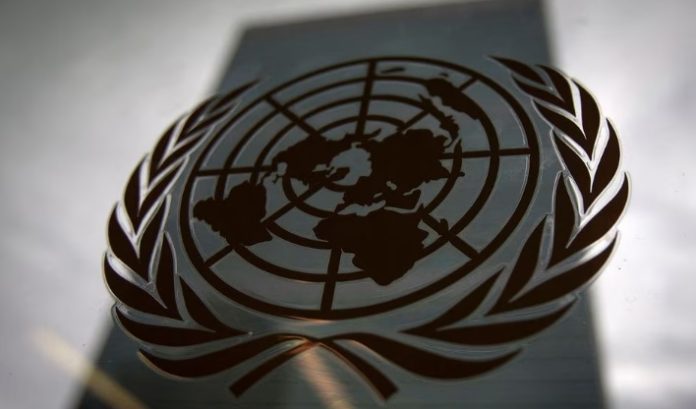At the 3+3 meeting in Tehran on 23 October, Iran called on Russia to thwart a United Nations Security Council (UNSC) resolution that it believes favours Israel.
The Foreign Ministers of Russia, Iran, Turkey, Armenia and Azerbaijan attended the meeting in Tehran. Representatives of Georgia did not attend the meeting. Iranian Foreign Minister Hossein Amir Abdollahian addressed the Russian delegation after the meeting:
“Today, Mr [Sergei] Lavrov, who heads the foreign ministry of the country with a veto right at the UN, and I held very serious negotiations on this matter [regarding the resolution at the UN, which contradicts the interests of Palestine]. We are also consulting with China on this matter. All our efforts are aimed at ensuring that the UN does not adopt a resolution contrary to the interests of the Palestinian people.”
The topic of the 3+3 meeting in Tehran was the situation in the Gaza Strip. The participants in the meeting emphasised the need for a ceasefire, discussed ways of resolving humanitarian problems and the withdrawal of foreign troops from the enclave.
Earlier, Lavrov reiterated Russia’s readiness to assist in the settlement of the Middle East conflict, while emphasising the remoteness of Russia’s relations with Israel and Palestine. The Russian foreign minister also reiterated Russian President Vladimir Putin’s commitment to Israel’s security, given that 1.5-2 million Russian citizens live there.
On 16 October, Russia proposed a humanitarian resolution on the Palestinian-Israeli conflict, which envisages an immediate truce in the Middle East, delivery of humanitarian aid and safe evacuation of civilians from the conflict zones.
The draft called on the conflicting parties to release hostages and condemned civil violence and terrorist acts. However, the resolution failed to garner enough votes: only Russia, China, Gabon, Mozambique, Gabon and the UAE voted in favour.
Afterwards, Russia’s permanent representative to the UN, Vasily Nebenzya, criticised the UNSC, accusing it of giving in to the whims of the Western bloc of delegations, and called the UNSC’s rejection of the Russian resolution a wasted effort.
On 21 October, Russia’s First Deputy Permanent Representative to the UN Dmitry Polyansky said that Russia planned to request a new meeting of the UN Security Council to discuss the settlement of the conflict in Israel.
After the ministerial meetings, the Azerbaijani Foreign Minister met with Iranian President Ebrahim Raisi, who sharply warned Baku that it should not rely on Israel. The Iranian president said:
“The Islamic Republic of Iran, as one of the significant and powerful countries in the region, emphasises respect for the sovereignty and territorial integrity of all nations, advocating for addressing issues through mutual understanding and cooperation among countries.”
Raisi, in a meeting with Azerbaijani President Bayramov, expressed the view that regional problems cannot be solved with the intervention of foreign forces [while veiledly alluding to Israel, with which Azerbaijan is increasingly co-operating]. Raisi noted that he had previously told “Mr Ilham” (meaning Azerbaijani President Ilham Aliyev) that the “Zionist regime” would not be an ally of Azerbaijan or any Muslim country. He claimed:
“The current situation in Gaza is a tableau for all the nations in the region to see that Western countries, led by the United States, by fully supporting the crimes of the Zionists, are not friends or well-wishers of the regional countries but are merely pursuing their racist interests in the region.”
The situation in the Middle East heated up on 7 October when Hamas militants infiltrated the border areas in southern Israel and fired rockets from the Gaza Strip into Israeli territory. As a result, 1,400 people were killed, according to Israeli authorities. In response, Israel has launched sustained airstrikes on the Gaza Strip, killing more than 5,000 people, according to estimates by Hamas, which controls that territory. Hamas has taken dozens of Israelis hostage, and in response, Israeli authorities have declared a complete siege on the region, depriving Gazans of electricity, water and any aid.
The Palestinians are trying to reclaim the borders between Israel and Palestine that existed before the 1967 Six-Day War. They seek to establish a sovereign state in the West Bank and Gaza Strip, designating East Jerusalem as its capital, a move rejected by Israel. Israel, meanwhile, is increasingly expanding its territory in the West Bank and establishing settlements, making it impossible to find a compromise and establish peace between the warring parties.
